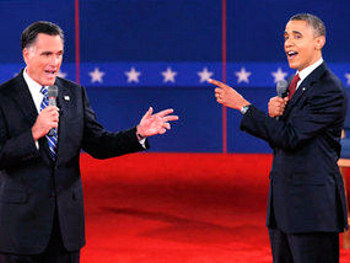|
Post Hoc
I actually remember that debate. My debate partner Kevin and I were well prepared. We came up with a creative plan for how “the jury system in the United States should be significantly changed.” We typed up dozens of quotes from experts supporting our position. And we were both tall, pleasant guys with really nice ties and sports coats. This would be easy as pie, we figured. A piece of cake. Until we got eaten alive. At first, we didn’t expect much from the two debaters from Highland High School. They were scrawny. They both wore glasses. And they both wore bow ties, if you can believe it. But then they started ripping into our plan with quotes that completely contradicted all our quotes. They even had quotes that said our experts were idiots. “Their entire plan is based on post hoc reasoning,” said Bow Tie #1. The judge scribbled something on his scoring sheet. I looked at Kevin. He shrugged his shoulders. Evidently, he didn’t know what “post hoc” reasoning was, either. “Why would you want to hock a post?” I asked, whispering toward Kevin. “I can see hocking a watch or some jewelry or something like that. But a post? I don’t get it.” “Maybe it means, ‘if you believe this you’re dumb enough to try to hock a post,’” Kevin whispered back. That made as much sense to me as anything. So I built my response around that. Not a good choice. The judge’s written reaction to my verbal comeback to the whole “post hoc” thing was direct: “’Oh, yeah?’ is not an argument.” “Please tell me you didn’t really say ‘Oh yeah?’ in rebuttal,” my debate coach, Mr. B, said as he reviewed the scoring sheet with us. “It wasn’t what he said as much as it was the way he said it,” Kevin said. “Yeah,” I said. “You had to be there. I think it was the right thing to say.” Mr. B looked at me witheringly as only he could. “Oh, I’m sure you DO ,” he said, leaning back in his chair and pushing his glasses up to his forehead while he rubbed his tired eyes. “That’s the problem.” The next day in class Mr. B introduced the entire debate team to “post hoc ergo propter hoc,” Latin for the logical fallacy that assumes because one thing followed another, the second happened because of the first. And after class he took me aside and talked to me about writing an oration. It turned out that oratory was the perfect place for me. I could write a speech, practice it, memorize it and deliver it. Those were all things I could do. But thinking through things logically, analyzing data, formulating responses and articulating those thoughts clearly and persuasively – all on the spur of the moment – was not exactly what I was cut out to do. So I’m in awe of any political candidate who is willing to get up in front of millions of people watching on TV and go toe-to-toe with a brilliant adversary – especially in an era of social media, instant analysis and armies of fact-checkers. If you say, “Oh, yeah?” it lives forever on YouTube. While there is a part of me that views public debates in our political process as theater – or at the very least, reality television – there is another part that appreciates the simple fact that we have them. Those who would serve us have to demonstrate their worthiness, and to argue their respective cases before us. It may not be the best way to discuss issues and to generate understanding, but there is as level of accountability that happens when you have to go before millions of voters in an attempt to articulate your position and put your promises boldly on the record. In that sense, no candidate wins or loses in these debates. The winner is the American people, and a process that makes a sincere and heartfelt attempt at openness. And there’s nothing “post hoc” about that. <ValueSpeak@msn.com> Copyright © 2012 |



